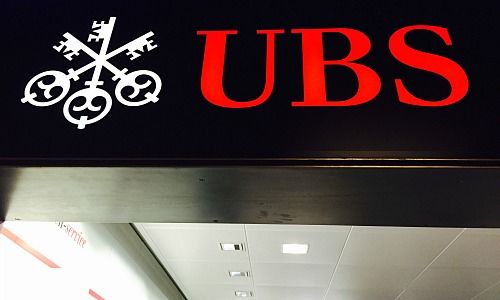Switzerland's largest bank made inroads in areas which have caused trouble recently – but seems stuck in its flagship wealth arm. This doesn't bode well for UBS' second half.
Swiss bank UBS surprised investors with better-than-expected second-quarter profits on Tuesday. The wealth manager didn't just beat market views, it also showed improvement in asset management and investment banking – where it has struggled in recent quarters. UBS also managed to lower its spending bill, smoothing the final result.
With $3.38 trillion in assets overall, UBS remains the biggest private bank in the world. A closer look at its wealth management arm reveals the unit's assets dropped to $2.41 trillion, from $2.43 trillion sequentially.
America Bleeds
Why? The bank bled in the Americas, where clients pulled $8.3 billion; net new money in Switzerland and in Asia was too slight to make up for the U.S. hit in the second quarter (traditionally weak because tax payments are due). In other words, UBS doesn't have much momentum in its main business – banking the rich and ultra-rich.
The unit's profits before tax and revenue dropped on the year and its gross margin keeps corroding. That's tricky for two reasons: for one, a mega-merger of its U.S. brokerage and wider, international private bank 18 months ago hasn't produced the desired effect. For another, the unit – as well as the wider bank – is highly sensitive to the tension-filled situation between China and Hong Kong.
Turning the Screws
It's possible that UBS' headlong plunge into China, at the expense of more forcefully cultivating other attractive markets in Asia, is backfiring. It remains completely opaque how much money UBS is making in wealth management in China, a volatile and unpredictable business.
Against this backdrop, UBS has little choice but to keep turning the screws on spending – which the second quarter illustrates the bank is masterful at. This isn't an option for long-term growth. The potentially explosive situation in Hong Kong, as well as the prolonged trade tensions between the U.S. and China, will burden the bank and keep wealthy clients sidelined.
Top Management Pressured?
Even if Asia doesn't represent a ticking time-bomb, investors are already turning passive given rich financial market valuations. A cut in interest rates in the U.S. – which economists including those from UBS expect – won't change that stance.
The summer months traditionally represent a lull in private banking, and September and October tend to be difficult months. UBS has little chance of catching up on profits, revenue, and margins towards the back-end of 2019. It is up to investors to decide how much of this development is the fault of UBS' top management.



































